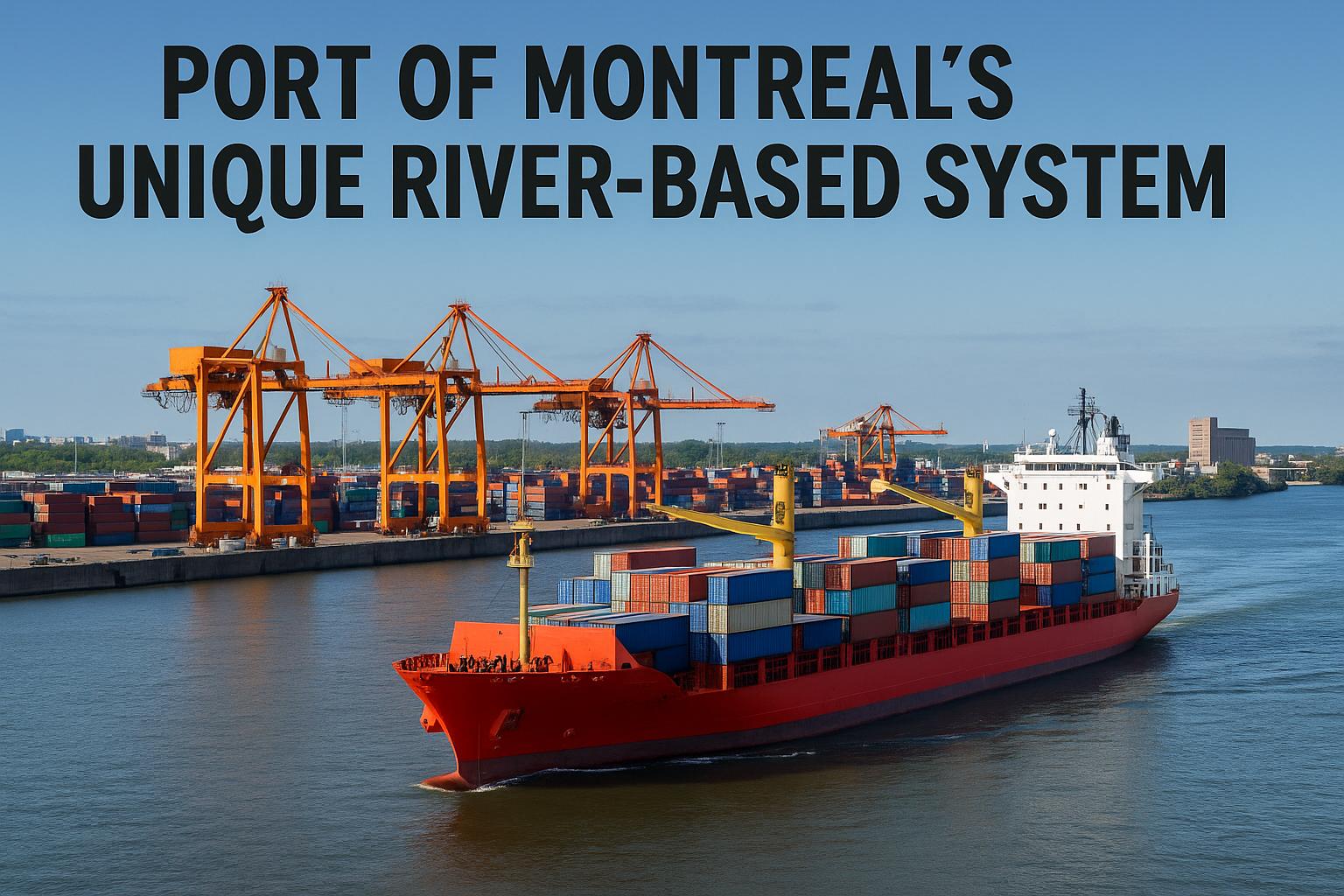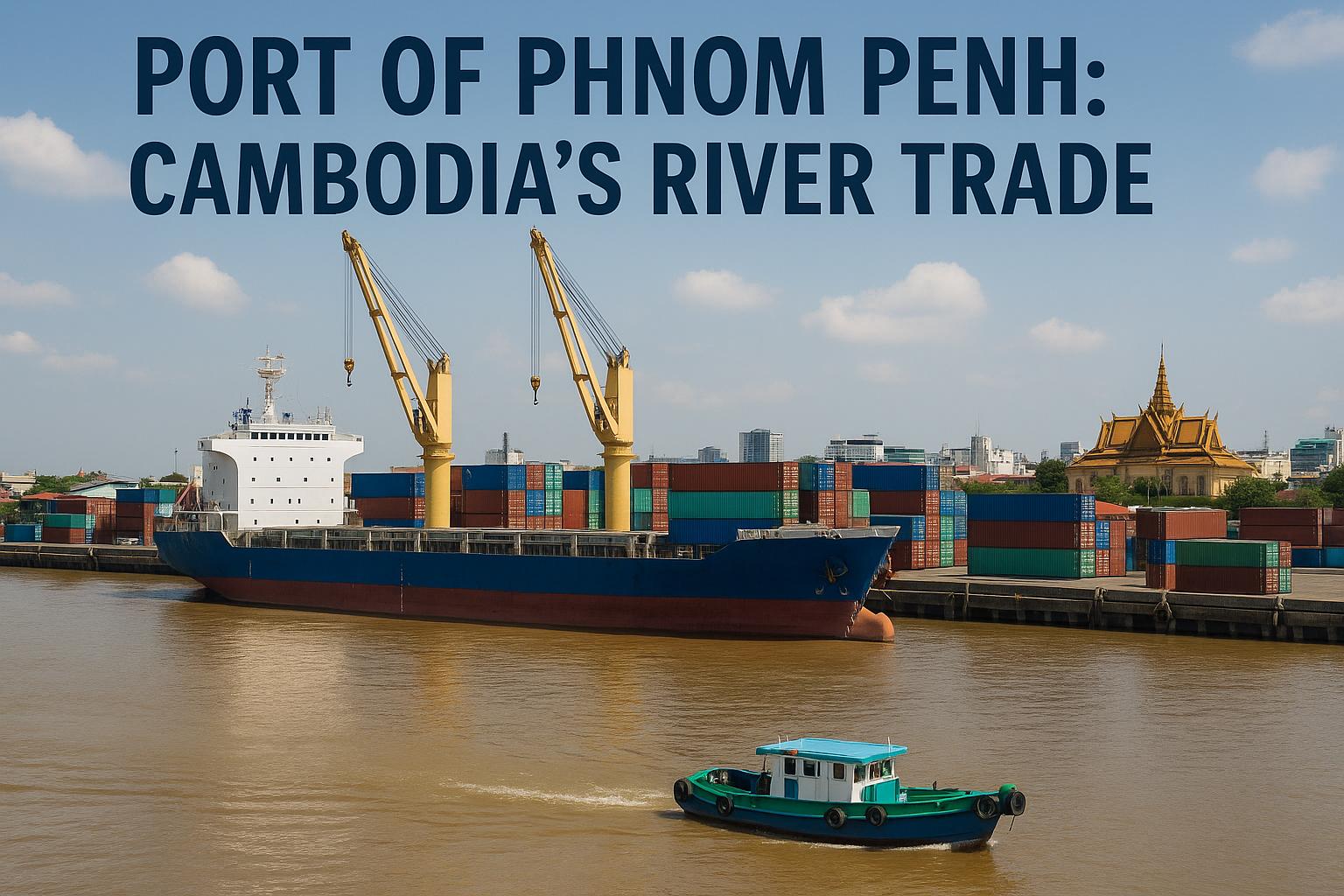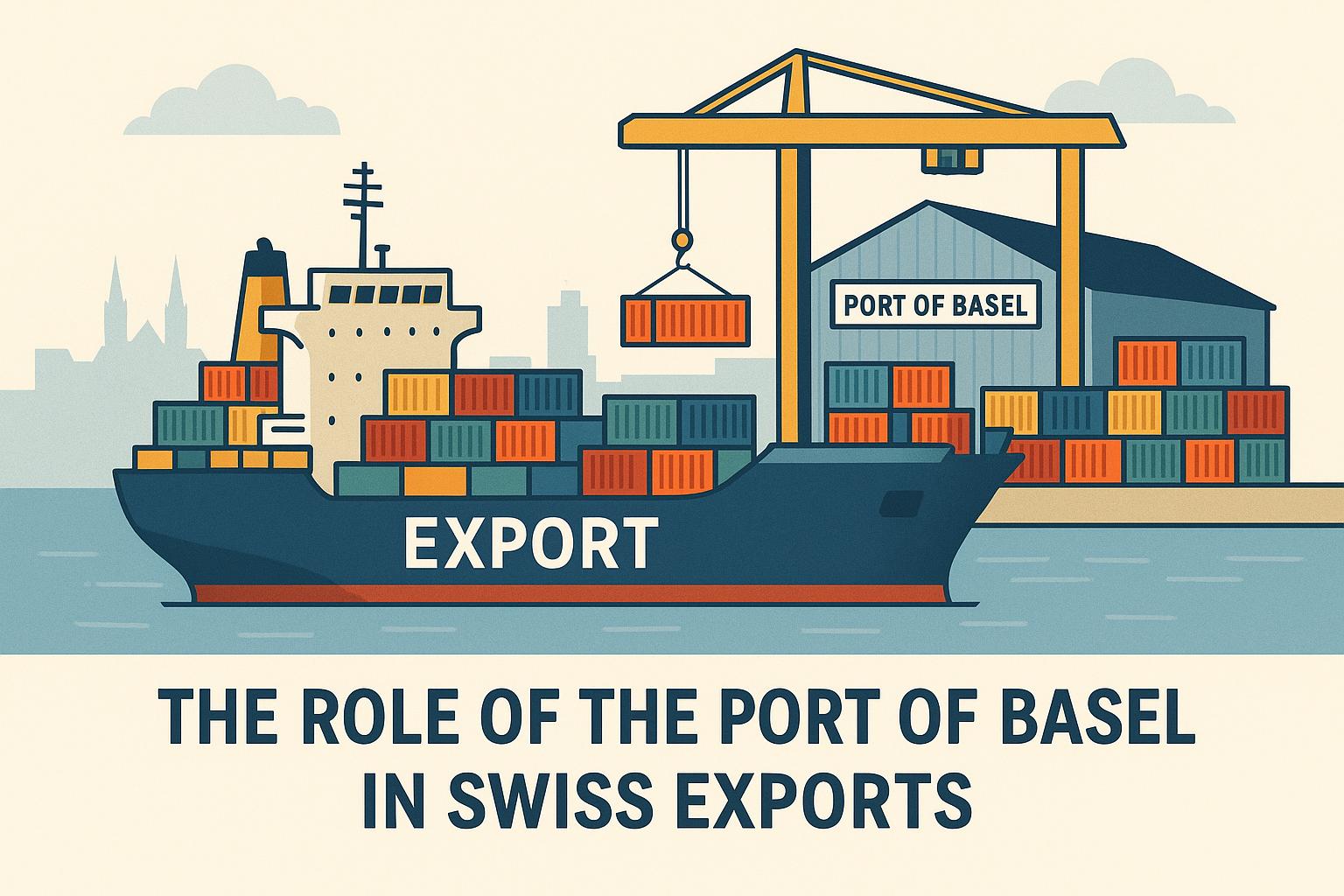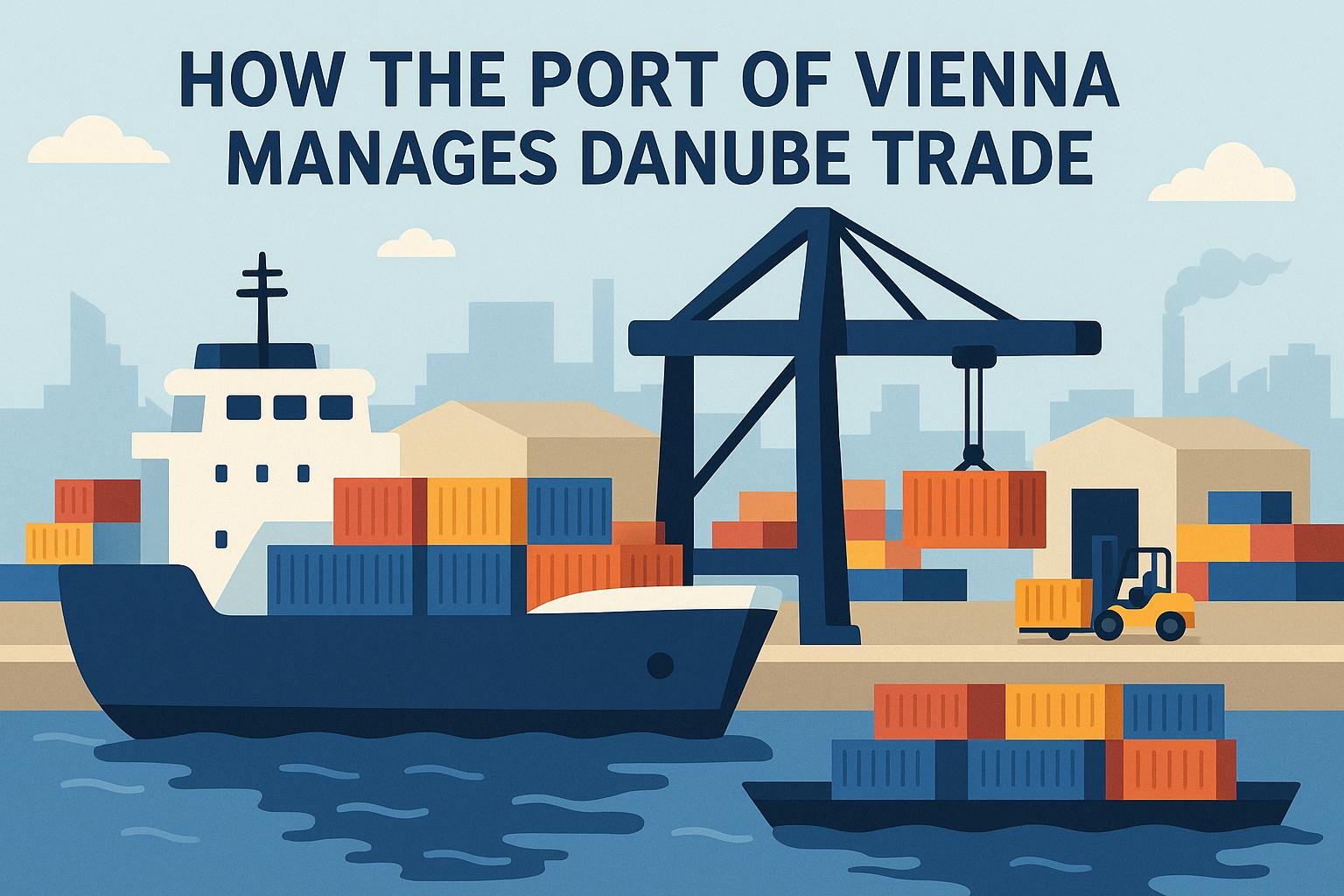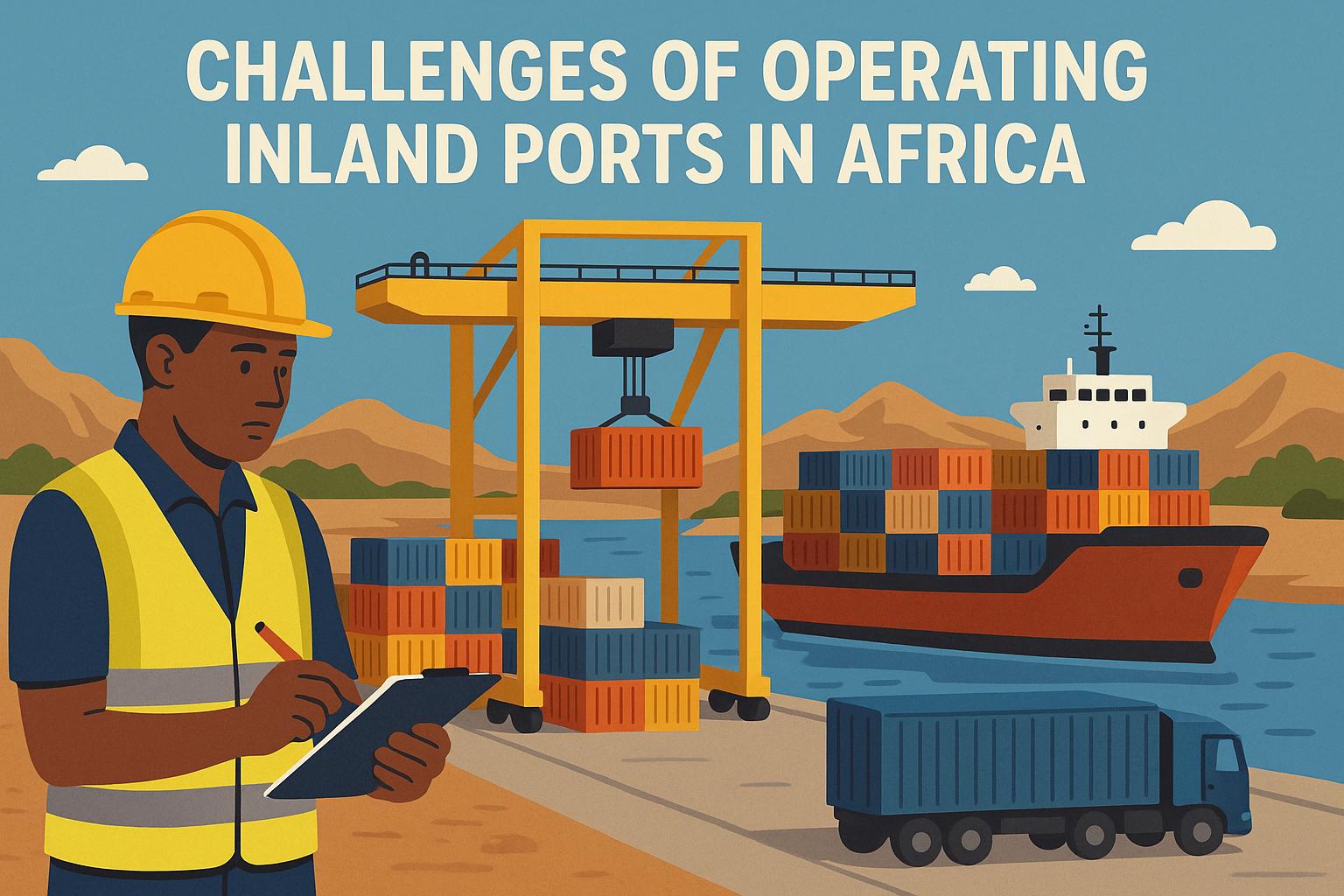Port of Montreal: A River-Based Maritime Hub
The Port of Montreal stands as a significant maritime facility located on the St. Lawrence River, known for its unique river-based system which differentiates it from many global ports. This system offers distinct advantages while presenting challenges that influence its operations, trade, and economic impact.
Strategic Geographic Location
Nestled on the banks of the St. Lawrence River, the Port of Montreal serves as a crucial node for the movement of goods. Its strategic position offers a direct waterway linkage to the Atlantic Ocean, establishing it as a gateway to North America. The port facilitates trade routes between Europe and the interior regions of Canada and the United States.
Proximity to Major Markets
The geographic location of the port offers proximity to major North American markets. This proximity enhances the speed and efficiency with which goods can move from the harbor to critical consumer and industrial markets. The port’s location reduces transit times, making it a preferred choice for importers and exporters involved in transatlantic trade.
Advantages of a River-Based System
The Port of Montreal’s river-based system offers a multitude of benefits. Chief among them is the connection to the Great Lakes-St. Lawrence Seaway. This waterway connects the vast Great Lakes region with the Atlantic Ocean, facilitating the efficient movement of bulk goods. Such goods include grain and minerals, essential for international markets. The accessibility of the river enables the port to sustain year-round operations, with icebreakers occasionally deployed during extreme winter months to ensure seamless navigation.
Cost-Efficiency in Transportation
Utilizing the river-based system significantly reduces transportation costs. Moving goods via waterways is often more economical compared to overland methods such as rail or trucking. This cost-benefit extends to shippers and industries depending on bulk transport, contributing positively to their bottom lines.
Economic Impact
The Port of Montreal plays a pivotal role in the economic landscape, both for Montreal and Canada at large. Supporting thousands of jobs directly and indirectly, the port emerges as a major economic driver. Its capacity to handle varied cargo, including containers, bulk, and break-bulk, underscores its versatility. Port activities encompass the import and export of a diverse range of goods, including consumer products, machinery, and raw materials.
Job Creation and Economic Stimulus
Thousands of employment opportunities arise from port operations, spanning across sectors like logistics, transportation, and customs. Additionally, the port stimulates economic activities within surrounding areas, boosting business for local suppliers, service providers, and ancillary industries.
Environmental Considerations
Operating on a river-based system necessitates meticulous attention to environmental stewardship. The Port of Montreal adheres to comprehensive environmental regulations to preserve the river ecosystem. Initiatives aim to minimize the operational impact on water quality and local wildlife, ensuring compliance with ecological standards.
Sustainability Initiatives
The port has implemented cutting-edge sustainability initiatives to reduce emissions, aiming for enhanced energy efficiency in operations. By promoting effective resource usage, the port contributes to environmental conservation while maintaining its operational excellence.
Ongoing Environmental Research and Monitoring
Continuous research and environmental monitoring have been instituted to measure and mitigate impact. The use of advanced technologies assists in maintaining water quality and preserving biodiversity. Environmental assessments guide policy decisions and operational adjustments to align with sustainable practices.
Port Operations and Infrastructure
The infrastructure within the Port of Montreal is designed to accommodate diverse cargo types, featuring specialized terminals for containers, bulk, and break-bulk shipments.
Advanced Technology Integration
Cutting-edge technology adoption at the port enhances operational efficiency. Automated systems streamline loading and unloading processes, while advanced tracking systems provide real-time cargo monitoring, optimizing supply chain transparency.
Efficient Logistics and Distribution Networks
The port’s integration with robust logistics and distribution networks facilitates smooth cargo movement. Efficient inland transport connections ensure goods reach their destinations promptly, boosting distribution efficiency.
International Trade Relations
As a vital component of Canada’s trade infrastructure, the Port of Montreal maintains strong international trade relations. These alliances extend across various continents, intensifying the flow of goods and fostering global connectivity.
The port plays a critical role in facilitating trade under agreements such as the North American Free Trade Agreement (NAFTA) and the United States-Mexico-Canada Agreement (USMCA). These frameworks enhance trade liberalization, enabling smoother cross-border transactions.
Beyond economic transactions, the Port of Montreal is a cultural exchange conduit, enhancing ties between nations and contributing to the social fabric through diverse interactions stemming from international trade.
Challenges and Future Prospects
While the advantages of the river-based system are numerous, the Port of Montreal faces challenges such as climate change impacts, technological advancements, and increasing competition.
Addressing Climate Change and Adapting to New Technologies
The port is proactive in adopting measures to address climate change concerns. Investment in eco-friendly technologies and adaptive infrastructure equips the port to handle these prospective challenges effectively.
Competitive Landscape and Market Dynamics
The global port industry is highly competitive, with emerging markets and technological disruptions dictating market dynamics. To maintain its competitive edge, the Port of Montreal implements innovative strategies and fosters strategic partnerships, ensuring its stature as a premier maritime hub.
In conclusion, the Port of Montreal’s river-based system offers distinctive operational advantages, significantly contributing to its strategic relevance. Its integral role in facilitating trade and fostering economic activities underlines the necessity of sustained investment and meticulous environmental stewardship to fortify its operations for the future.
